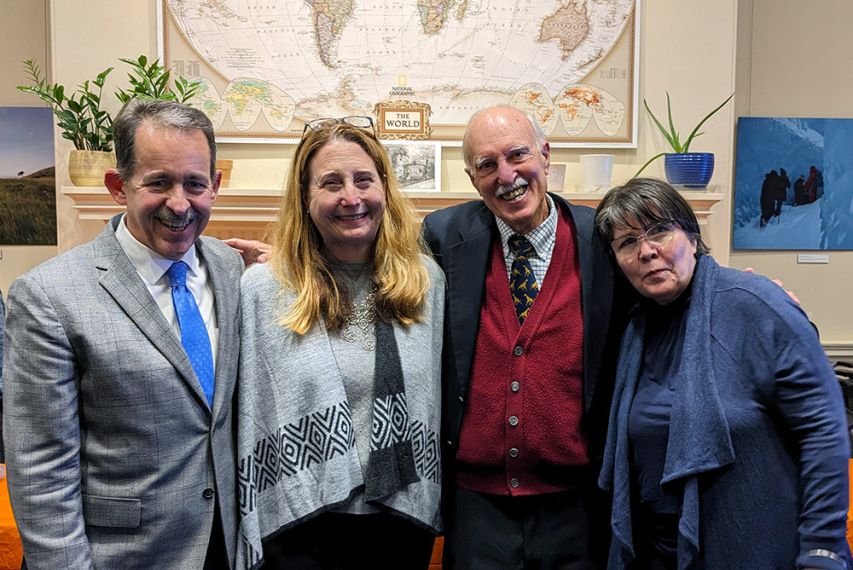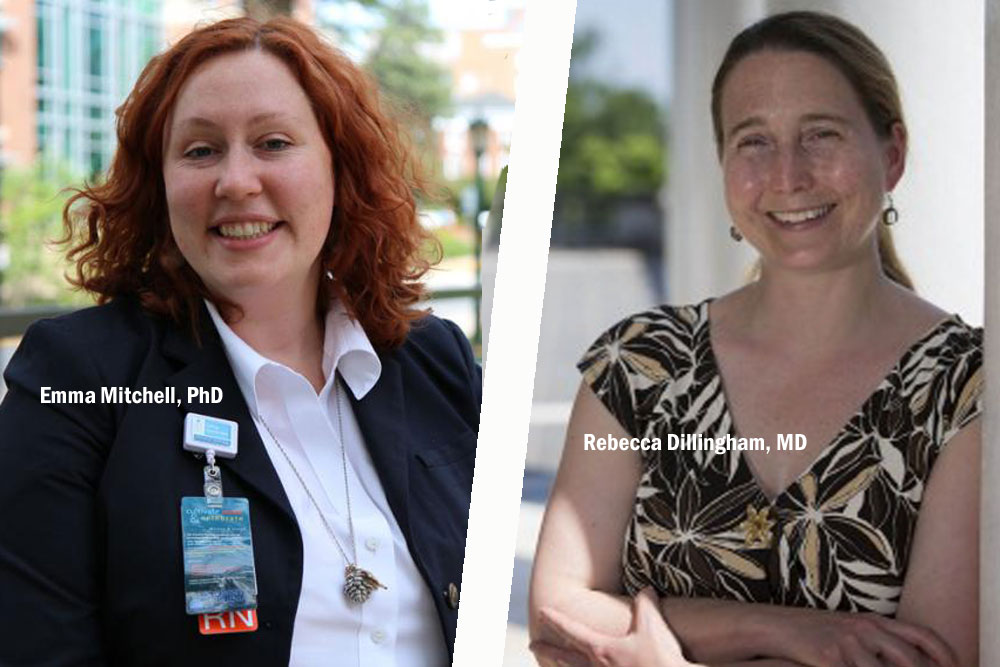You succeeded the founder of CGHE as the director, please share your experience in the last decade.
Dillingham: Succeeding a founder, especially one as dynamic and visionary as Dr. Dick Guerrant might have felt daunting. However, those who know Dr. Guerrant also know that there is nothing that he loves more than seeing his mentees thrive while moving shared ideas and values forward. Over the past ten years, I have always felt supported and inspired by Dr. Guerrant. While leading CGHE, I have relished the opportunity to pursue our shared goal of tackling health inequities through the creation of outstanding student-focused research and training opportunities that invite collaboration across disciplines and require authentic partnership with communities.
What were some of your key achievements at CGHE?
Dillingham: In my time, the team has succeeded in tripling the number of CGHE student scholars who have received awards to engage in global health equity research and community engagement. We could never have achieved this goal without our amazing staff members, April Ballard and Amber Steen, or without the key mentorship of faculty from across Grounds and at UVA at Wise as well as community partners around the Commonwealth and the globe. In addition, transformative support from alumni and friends of CGHE has provided the means to achieve this impressive increase.
Another key achievement has been to expand opportunities for students, faculty and community members to explore issues and imagine solutions related to global health challenges around the world and right here at home, without leaving Grounds. Our Global Health on Grounds series includes an annual student research symposium, regular journal clubs and informal faculty talks, and the Global Health Case Competition (GHCC). I am particularly excited about the GHCC because this year is the 10th anniversary! This is an idea that came from students, continues to be led by students, and typically attracts more than 100 students from five or more Schools across Grounds. The Global Health on Grounds programming connects the UVA community to the health of communities around the world, and it presents invaluable leadership development training opportunities for motivated students committed to global health.
A third achievement, made possible by Dr. Nancy and Dick Guerrant, is the creation of a formal faculty recognition program to identify excellence in global health research and to support its growth. The Richard and Nancy Guerrant Global Health Equity Professor Awards have now recognized five faculty over two years and have provided support for faculty projects related to global health equity. So far, the faculty represent five schools (CLAS, SOM, SON, McIntire, Education) are exploring diverse, timely topics, and are creating new student opportunities as well!
Finally, we are delighted to have a growing group of global partnerships including the AMPATH Consortium, a best-in-class global health collaboration that is facilitating new UVA faculty and student engagement with colleagues in Eldoret, Kenya.





